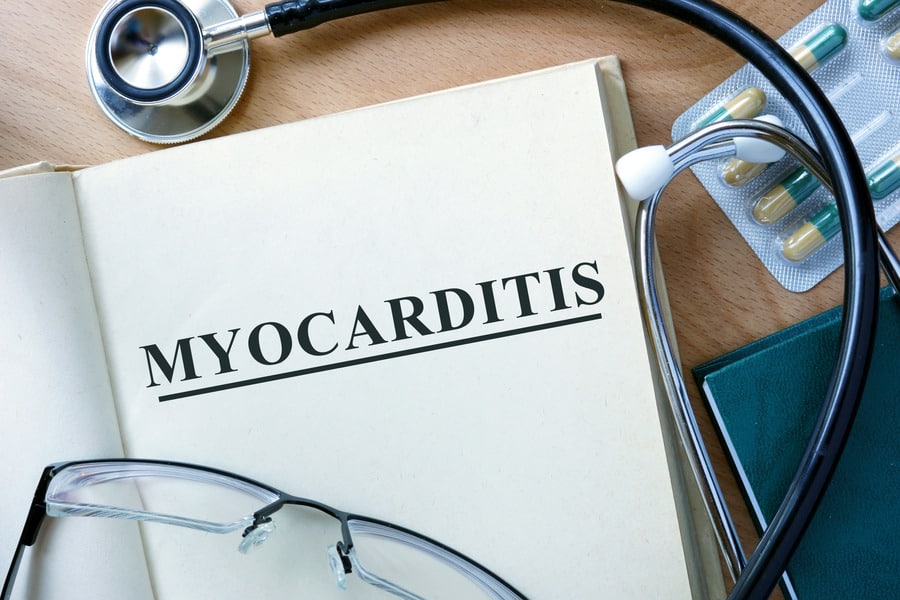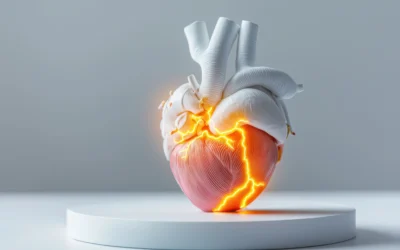Myocarditis is an inflammatory condition affecting the heart muscle, with a range of causes and potential complications. By understanding myocarditis, recognizing its symptoms, and knowing how to prevent and manage it, individuals can make informed decisions about their heart health.
Definition
Myocarditis is a medical condition characterized by inflammation of the heart muscle (myocardium). Inflammation can weaken the heart muscle and affect its ability to pump blood efficiently, potentially leading to heart failure, irregular heart rhythms, or sudden cardiac death. It is a serious condition that requires prompt medical attention and management.
Overview
Myocarditis can occur at any age, but it is more common in young adults and children. It often presents with symptoms that mimic those of a heart attack, making it crucial to seek medical evaluation. The inflammation can be mild and resolve on its own, or it can be severe, causing long-lasting damage to the heart. It is essential to identify and manage the underlying causes of myocarditis to prevent further complications.
Symptoms
The symptoms of myocarditis can vary widely and may resemble those of other heart conditions. Common symptoms include:
- Fatigue or weakness
- Chest pain or discomfort
- Rapid or irregular heartbeats (arrhythmias)
- Shortness of breath, especially during physical activity
- Swelling in the legs, ankles, or feet (edema)
- Lightheadedness or dizziness
- Fever or flu-like symptoms
In severe cases, myocarditis can lead to heart failure, with additional symptoms such as sudden weight gain, increased urination at night, and difficulty breathing when lying down.
Causes
The causes of myocarditis are diverse and can include:
- Viral infections: Many viruses, including the common cold, hepatitis, and human immunodeficiency virus (HIV), can cause myocarditis.
- Bacterial infections: Bacteria like streptococcus and staphylococcus can lead to myocarditis.
- Fungal or parasitic infections: Myocarditis can be caused by fungal infections like aspergillosis or parasitic infections like Chagas disease.
- Autoimmune diseases: Conditions such as lupus or rheumatoid arthritis can cause the immune system to attack the heart muscle.
- Drugs or toxins: Some medications, illegal drugs, or environmental toxins can trigger myocarditis.
- Vaccines: In rare cases, certain vaccines may cause myocarditis as a side effect.
Risk Factors
Risk factors for myocarditis include:
- Having a recent viral infection
- A history of autoimmune diseases
- Exposure to certain drugs or toxins
- Being immunocompromised
- Genetic predisposition
How to Avoid It
Preventing myocarditis involves reducing the risk of infections and managing chronic conditions:
- Practice good hygiene: Wash hands regularly, avoid close contact with sick individuals, and practice safe food handling.
- Stay up-to-date on vaccinations: Ensure you receive recommended vaccines to prevent infections that could lead to myocarditis.
- Manage chronic conditions: If you have an autoimmune disease or another chronic condition, work with your healthcare provider to manage it effectively.
- Avoid illegal drugs and toxins: Avoid exposure to substances that can trigger myocarditis.
When to See the Doctor
Seek medical attention if you experience chest pain, shortness of breath, or other symptoms associated with myocarditis, especially if you have recently had an infection. Early diagnosis and treatment are crucial to prevent long-term heart damage.
Diagnosis
Diagnosing myocarditis involves a thorough assessment of the patient’s history, physical examination, and various tests to rule out other conditions that may present with similar symptoms. Some of the diagnostic tests include:
- Blood Tests: These can be used to measure levels of certain proteins or enzymes that are released when the heart muscle is damaged.
- Electrocardiogram (ECG): An ECG records the electrical activity of the heart and can help detect abnormalities that might suggest myocarditis.
- Echocardiogram: This ultrasound test provides images of the heart’s chambers and valves, helping assess its function and structure.
- Cardiac MRI: A magnetic resonance imaging (MRI) scan of the heart can provide detailed images and help identify inflammation or other abnormalities.
- Cardiac Catheterization and Biopsy: In some cases, a small sample of heart tissue may be taken for microscopic examination to confirm the diagnosis.
Treatment
The treatment of myocarditis is tailored to the individual based on the cause and severity of the inflammation. Some treatment options include:
- Medications: Various medications can help manage myocarditis. These may include anti-inflammatory drugs, diuretics to reduce fluid buildup, or medications to improve heart function.
- Treatment of Underlying Cause: If the myocarditis is caused by an infection, antibiotics, antiviral drugs, or other treatments may be necessary.
- Hospitalization: In severe cases, hospitalization may be required to provide specialized care, such as oxygen therapy or intravenous (IV) medications.
- Lifestyle Changes: Patients may be advised to rest, reduce physical activity, follow a heart-healthy diet, and avoid alcohol.
- Follow-up Care: Regular check-ups with a cardiologist are crucial to monitor the patient’s progress and prevent complications.
Complications
Untreated or severe myocarditis can lead to complications such as:
- Heart Failure: The weakened heart muscle may struggle to pump blood efficiently, leading to heart failure.
- Cardiomyopathy: Chronic inflammation can lead to the enlargement of the heart muscle, known as cardiomyopathy.
- Arrhythmias: Irregular heart rhythms can develop due to the damage to the heart muscle.
- Cardiac Arrest: In severe cases, the heart may stop beating suddenly, requiring immediate resuscitation.
Prevention in High-Risk Situations
Certain situations may increase the risk of myocarditis, such as receiving certain vaccines or medications, undergoing certain medical procedures, or exposure to specific toxins. If you are at higher risk, it is essential to discuss your situation with your healthcare provider, who can advise on appropriate monitoring and risk reduction measures.
Education and Support
Educating yourself about myocarditis, its potential causes, and treatment options can empower you to take an active role in your heart health. Consider joining a support group or connecting with organizations that provide resources and support for individuals with myocarditis or heart conditions. These resources can help you navigate your diagnosis and provide valuable information and emotional support.
Remember, early diagnosis and prompt treatment are key factors in managing myocarditis effectively and preventing complications. Take any symptoms seriously, and seek medical attention if you experience chest pain, shortness of breath, or other concerning symptoms.
In conclusion, Myocarditis is a serious condition characterized by inflammation of the heart muscle. Recognizing the symptoms, understanding the causes, and taking preventative measures are essential for maintaining heart health. By working closely with healthcare providers and following recommended treatment plans, individuals can manage myocarditis and reduce the risk of complications.









